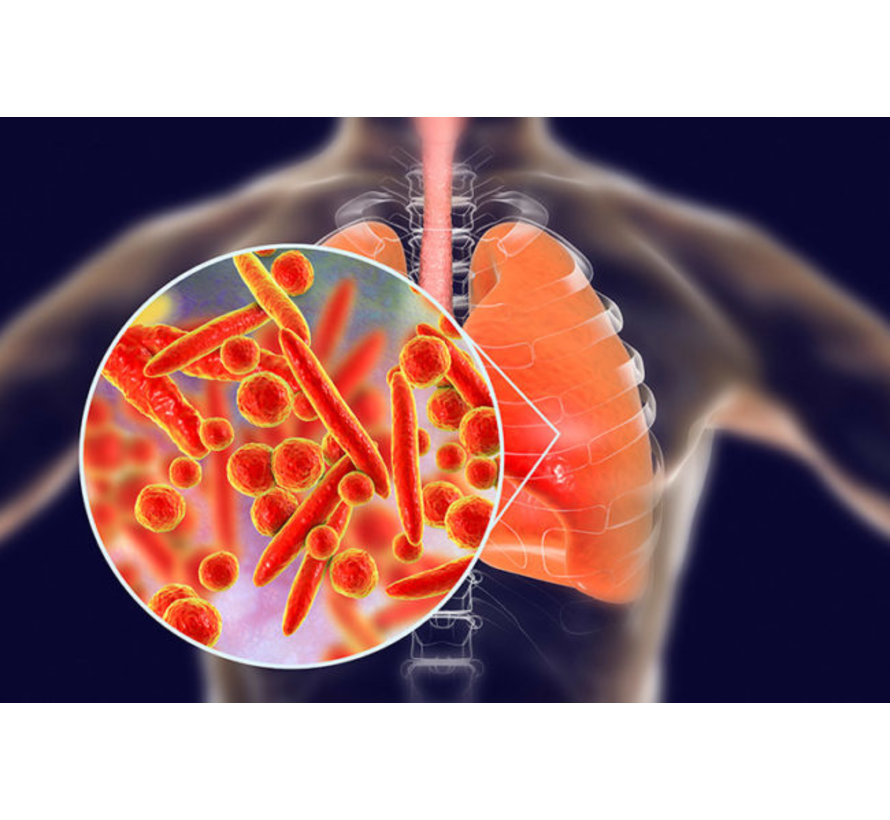Mycoplasma pneumoniae bacterium pneumonia
This examination consists of: Mycoplasma pneumonia IgG antibodies serum and Mycoplasma pneumonia IgM antibodies from serum
Infections with Mycoplasma pneumoniae crop up every year. Every 3 to 5 years we also see them in the form of epidemics.
In case of complaints, you should consult your family doctor.
This infection primarily affects children between the ages of 4 and 10 and young adults, but can also occur in adults.
Increased risk of severe course occurs in:
- Elderly (≥ 65 years);
- people with an autoimmune disease or immune deficiency
- chronic steroid use,
- chemotherapy;
People with chronic lung disease (e.g., asthma, COPD, cystic fibrosis) and smokers; - People with Down syndrome;
- People with sickle cell anemia (Waites 2017).
After infection, you don't get sick immediately. The time between contact with the pathogen and symptoms (the incubation period) is 1 to 4 weeks.
Often the disease starts as a common cold with runny nose, cough, throat and headache, and sometimes fever and muscle aches. These symptoms usually disappear spontaneously after 2 to 3 weeks. In about 10% of patients, the symptoms remain for more than a month.
Sometimes the infection spreads and a pneumonia with a prolonged cough develops, called atypical pneumonia. This can last more than 3 weeks in children, and more than 4 to 8 weeks in adults.
Other possible symptoms include skin rash, brain (membrane) inflammation with convulsions and decreased consciousness, vision disturbances, vomiting and diarrhea, inflammation of the liver, muscle and joint pain, inflammation of the heart muscle with chest pain and occasional arrhythmias and blood abnormalities.
You can become infected with Mycoplasma pneumoniae more than once.
In general, one recovers quite well from a Mycoplasma infection. Most of these infections go unnoticed. You may also feel weak for a long time after such an infection. The cough may also persist for weeks or even months.
Top athletes are more susceptible to recurrent respiratory infections and thus presumably to Mycoplasma infections. In case of fever and fatigue, they should take rest and rebuild training carefully.
Analysis method ELISA (EIA)
Duty to report article 26 in case of multiple cases in an institution
A vaccine is not (yet) available, research on this is ongoing (Linchevski 2009, Dumke 2016).











